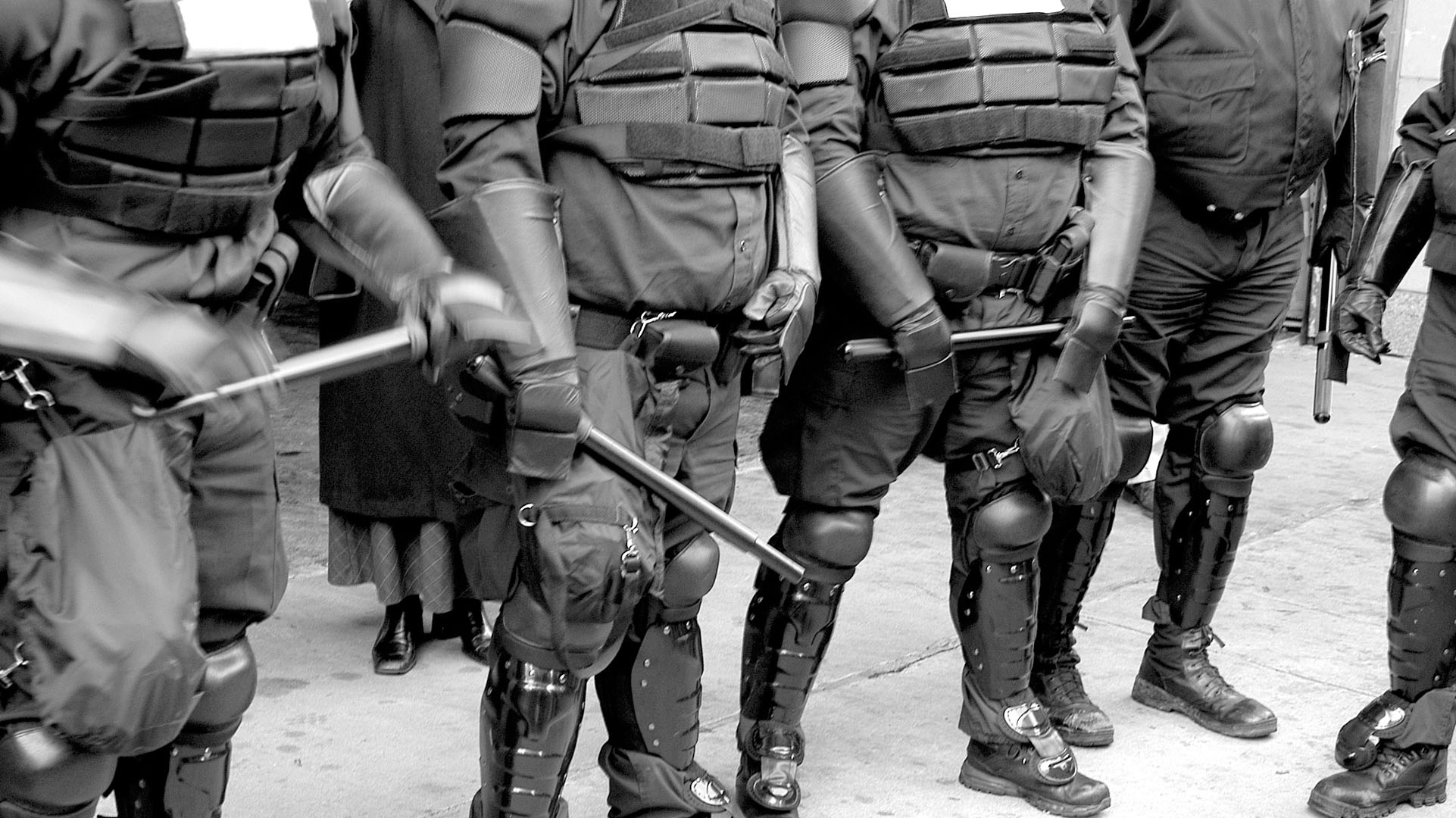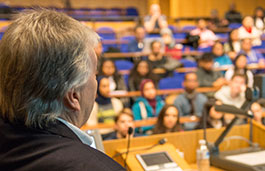Search
Terrorism, International Crime and Global Security MA
Study level: PostgraduateConversion course

Explore threats to the modern global community and build your skills to positively shape the future.
Year of entry
Location
Coventry University (Coventry)
Study mode
Full-time
Duration
1 year full-time
Course code
CAST013
Start date
January 2026
March 2026
May 2026
July 2026
Course overview
Explore critical 21st-century security threats to help you pursue careers in fields such as transnational counter crime, terrorist prevention, corporate security, NGOs, and law enforcement.
Develop interdisciplinary insights into terrorism, organised crime, and governance, building the skills you need to address global security challenges and shape future responses to these issues.
Key course content includes:
- Addressing contemporary global challenges: explore key threats to the global community, such as terrorism or human trafficking in order to understand and develop policy, action, and counter crime strategies.
- Global perspectives: engage with case studies from across the world to explore comparative insights into counter-terrorism, organised crime and modern slavery strategies worldwide.
- Applied learning: experience global security simulations, policy briefs, and threat assessments, preparing you for diverse careers in policy-making, security, government, media, uniformed services and NGOs.
5 QS Stars for Teaching and Facilities
QS Stars University RatingsRanked 9th Modern University in UK by the Times
The Times and Sunday Times Good University Guide 2025Ranked 4th for Overall Satisfaction in PTES
Postgraduate Taught Experience Survey (PTES) 2025Why you should study this course
- Enhance your knowledge and analytical skills: assess the ways in which different actors endanger, destabilise, or support global security, paying particular attention to issues related to international terrorism, counter-crime, human trafficking, and maritime security.
- Learn from a wide range of external professionals and practitioners: speakers deliver a range of guest sessions designed to connect you with a range of critical issues, from current challenges facing the global community to cutting-edge insights into key threats to human security.2
- Engage in diverse learning and assessment opportunities: all enhanced by personalised attention to help you to achieve your career aspirations. Workshops are interactive, supportive learning environments. Assessments are varied, allowing you to create a broad portfolio of experience and skills.
- Career readiness: develop leadership and analytical skills for roles in global security, international policing, Non-Governmental Organisations, transnational business, corporate security, diplomacy, and the justice sectors.
Collaborations

Endorsement by the Royal Society for Arts, Manufactures and Commerce (RSA)
Coventry University and the RSA have collaborated on a module concerning social and ethical responsibility. You will be entitled to a 12-month fellowship of the RSA so you can access all RSA resources and platforms during your period of study. Once you have successfully passed the Global Affairs in Action module, you will receive an RSA digital credential.
What you'll study
We regularly review our course content, to make it relevant and current for the benefit of our students. For these reasons, course modules may be updated.
How you'll learn
Teaching and learning methods may include:
- lectures
- seminars
- tutorials
- simulations
- presentations
- group activities
- workshops.
Teaching contact hours
As a full-time postgraduate student, you will study modules totalling 180 credits each academic year. A typical 30-credit module requires a total of 300 hours of study. Study hours are made up of teaching contact hours, and guided and independent study.
Teaching hours
Teaching hours may vary, depending on where you are in your studies, but on average you will have between 8 and 12 teaching and learning hours each week. You will also have the opportunity to attend optional sessions including time with a Success Coach or to meet with staff for advice and feedback.
Guided and independent study
Throughout your studies, you will be expected to spend time in guided and independent study to make up the required study hours per module. You will be digging deeper into topics, reviewing what you’ve learnt and completing assignments. This can be completed around your personal commitments. As you progress to the end of your studies, you’ll spend more time on independent learning.
Online learning
As an innovative university, we use different teaching methods, including online tools and emerging technologies. So, some of your teaching hours and assessments may be delivered online.
Assessment
This course will be assessed using a variety of methods which could vary depending on the module. Assessment methods may include:
- reports
- essays
- coursework
- policy briefs/threats assessment reports
- assignments
- presentations.
The Coventry University assessment strategy aims to ensure that our courses are fairly assessed and allows us to monitor student progression towards achieving the intended learning outcomes.
Entry requirements
Typical entry requirements:
Fees and funding
| Student | Full-time | Part-time |
|---|---|---|
| UK, Ireland*, Channel Islands or Isle of Man | £11,200 | Not available |
| EU | £11,200 per year with EU Support Bursary** £18,600 per year without EU Support Bursary** |
Not available |
| International | £18,600 | Not available |
For advice and guidance on tuition fees3 and student loans visit our Postgraduate Finance page and see the university's Tuition Fee and Refund Terms and Conditions.
We offer a range of international scholarships to students all over the world. For more information, visit our International Scholarships page.
Tuition fees cover the cost of your teaching, assessments, facilities and support services. There may be additional costs not covered by this fee such as accommodation and living costs, recommended reading books, stationery, printing and re-assessments should you need them.
The following are additional costs not included in the tuition fees:
- Any optional overseas field trips or visits: £400+ per trip.
- Any costs associated with securing, attending or completing a placement (whether in the UK or abroad).
*Irish student fees
The rights of Irish residents to study in the UK are preserved under the Common Travel Area arrangement. If you are an Irish student and meet the residency criteria, you can study in England, pay the same level of tuition fees as English students and utilise the Tuition Fee Loan.
**EU Support Bursary
Following the UK's exit from the European Union, we are offering financial support to all eligible EU students who wish to study an undergraduate or a postgraduate degree with us full-time. This bursary will be used to offset the cost of your tuition fees to bring them in line with that of UK students. Students studying a degree with a foundation year with us are not eligible for the bursary.
Facilities
Our George Eliot Building plays host to interactive seminars, advanced research training and group project activities. Interact with like-minded students, cross the Edible Garden to relax at the Hub or immerse yourself in books at the Lanchester library.
The Delia Derbyshire complex offers more space to learn, design and make, including a hyper-studio for students across all disciplines to collaborate on projects together, a gallery space and an events atrium.

Lanchester Library
The library is open 364 days a year. It’s where you can access your course’s specialist Academic Liaison Librarian. It’s also home to specialist teams which can support you with your academic writing and maths and statistics questions.

The Hub
The Hub is the centre of student life on campus. Facilities include a food court, convenience store, multi-faith centre, medical centre, hairdresser, coffee shops and the Your SU offices. It has fully licensed function spaces and a bar.

Careers and employability
Get one-on-one guidance lasting up to 18 months from the end of your course. We’ll help you find placements and graduate roles, offer CV and application checks, mentoring, skills workshops, employer events and more.
Facilities are subject to availability. Access to some facilities (including some teaching and learning spaces) may vary from those advertised and/or may have reduced availability or restrictions where the university is following public authority guidance, decisions or orders.
Careers and opportunities
This course should prepare you to make meaningful contributions to a safer and more secure world, whether in public service, private sector roles, or international advocacy. The interdisciplinary approach of the course aims to equip you with the knowledge and skills needed to pursue a wide range of career opportunities.
On successful completion of the course, you will be able to:
- demonstrate a systematic understanding of knowledge and a critical awareness of current problems and/or new insights related to counterterrorism, counter-crime, and methods of countering human trafficking, much of which is at, or informed by, the knowledge and practices at the forefront of their field of study.
- exhibit a critical understanding of international organised crime and terrorism, being able to identify to what extent these specific phenomena threaten human rights and global stability.
- command a comprehensive understanding of techniques, standards and ethics applicable to their own research, with an ability to evaluate different theoretical and methodological approaches and frameworks, applicable to research and problem solving in an academic or employment context alike.
- demonstrate innovation in the application of knowledge, together with a practical understanding of how established techniques of research and enquiry are used to create and interpret knowledge.
- manage complex issues both systematically and creatively, make sound judgements in the absence of complete data, and communicate their conclusions clearly via a variety of mediums to specialist and non-specialist audiences.
- demonstrate self-direction and enterprise in tackling and solving problems, and act both autonomously and in groups in planning and implementing tasks.
- demonstrate organisational skills: manage time effectively, to set objectives and to evaluate the performance of oneself and others.
- critically evaluate the principles for leading and developing people and equality, diversity and inclusion at a strategic level.
Successful graduates may seek positions in the following types of organisations:
- Counter-terrorism
- Counter-crime
- Counter-human trafficking and modern slavery
- International policing
- Intelligent services
- Maritime Security
- National and International Media services
- Civil Service
- Government
- Think Tanks
- Research and academia
- NGOs.
Where our graduates work
Previous graduates have gone on to build successful careers in:
- National and international policy-making bodies: shaping strategies and policies to counter terrorism, organised crime, and threats to human security (including modern slavery, human trafficking).
- Government agencies: working in defence, intelligence, homeland and maritime security, and foreign affairs to address transnational threats.
- International organisations: contributing to the work of organisations such as the UN Office on Drugs and Crime, INTERPOL, International Maritime Organisation, and the European and African Union in areas like conflict prevention, crime prevention, and human rights protection.
- Law enforcement and policing: specialising in counter-terrorism, Modern Slavery and Human trafficking, cybercrime, and transnational criminal investigations.
- Armed services and the defence sector: developing and implementing security strategies to combat terrorism and organised crime.
- Corporate security and risk management: advising businesses on mitigating risks related to terrorism, cybercrime, and geopolitical instability.
- Non-Governmental Organisations (NGOs): working on human rights advocacy, conflict resolution, and humanitarian aid in crisis-affected regions.
- Academia and research: pursuing further research or teaching in the fields of terrorism, international crime, and human security.
- Think Tanks and consultancies: providing expert analysis and recommendations on global security challenges.
How to apply
You may also like

International Relations MA






